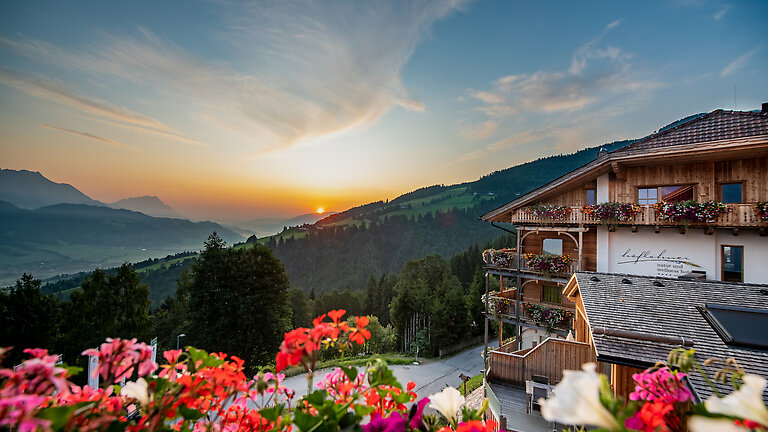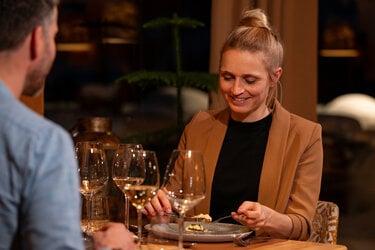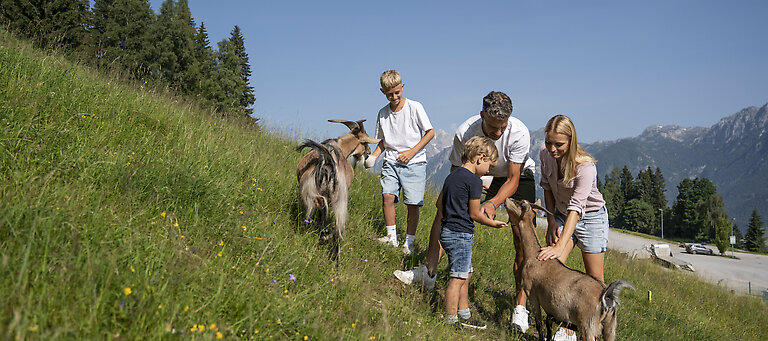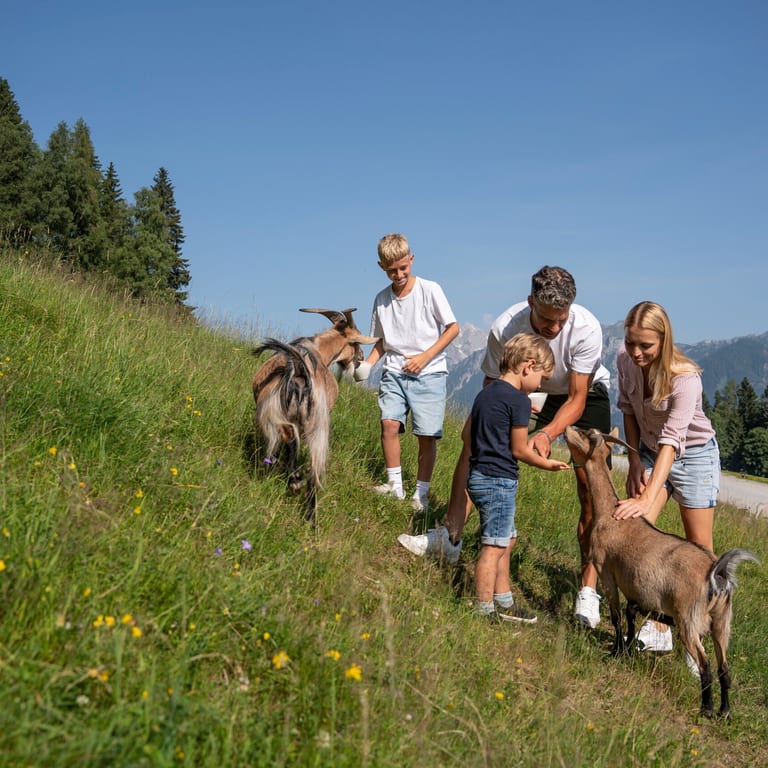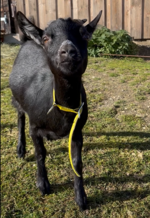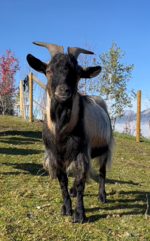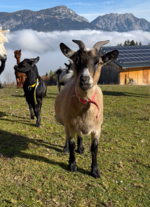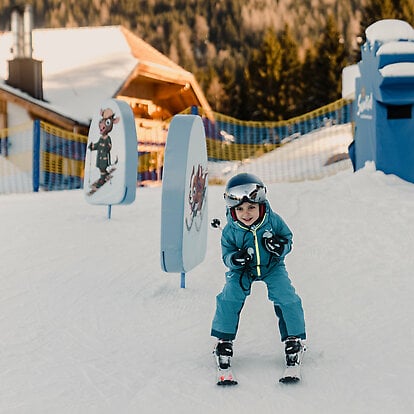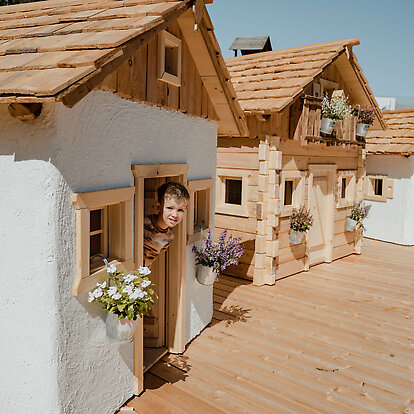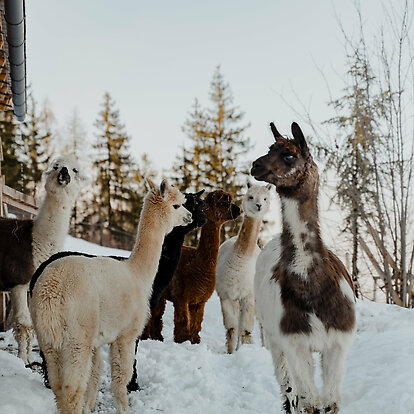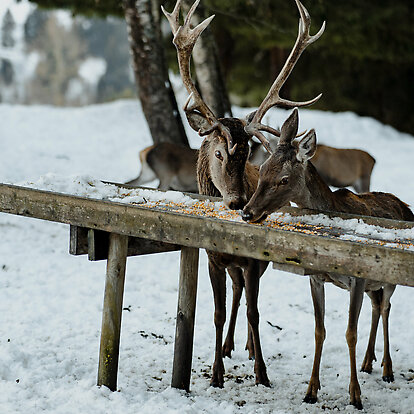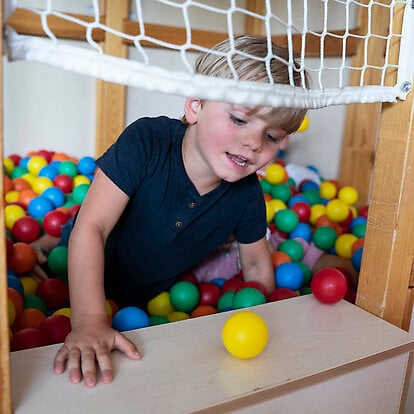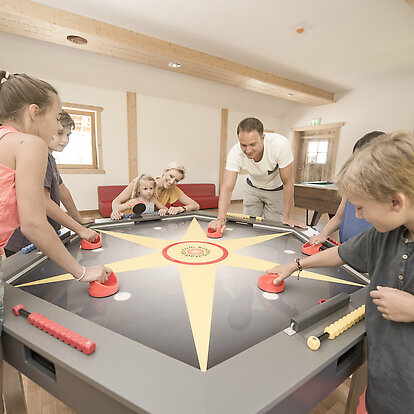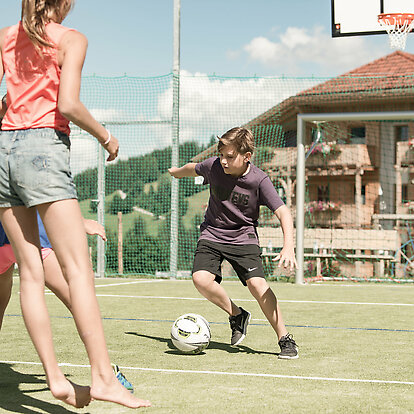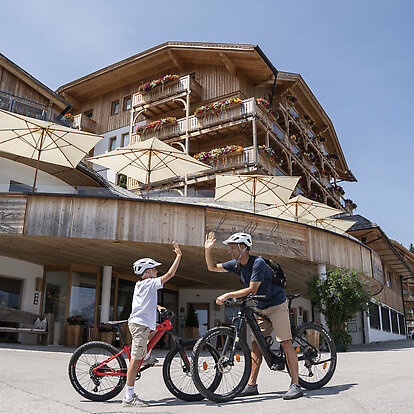Goat experience
Holidays in the countryside are something very special - especially for city children, who don't get to know different animal breeds every day and usually only read about them in books. Well-deserved holidays are the ideal time to gain exciting and valuable experiences with different animal breeds and to spend valuable time with the animals.
" Susi, Strolchi and Sissi - the bleating threesome "
As part of our weekly programme, your children can feed, stroke and observe the goats together with our child carers. As the correct handling of goats needs to be learnt, and goats in particular have their moods and can be unpredictable, children are only allowed in the goat enclosure when accompanied by at least one carer.
Beastly stubborn offspring
Moum. Our Susi became a mum in December. The mum and her little kid are doing well. The little goat has already found new friends: she already has Maestro, Sissi, Miguel and many others as animal companions. Incidentally, the little kid can't keep still either and so she bounces around cheekily and full of energy in the barn and on the pasture.
Interesting facts about goats
- The female goat is called a goat and the male goat is called a buck, their young together are usually referred to as fawns.
- Goats should never be kept alone, they are very sociable animals and can develop diseases if they have to live alone.
- Their coats can be very different - shaggy or soft.
- Goats are very clean animals and picky when it comes to food. They prefer to eat leaves and foliage and nibble on wood.
- Goats can form friendships with other animals - as in our case, for example, with our llamas and alpacas.
- Goats love to move around: they climb and jump on raised objects and prefer to rest in raised places.
- Goats quickly become tame and seek contact with humans, even if they are initially timid and shy.
- They can reach an age of 15 years.

